- Search Please fill out this field.
- Manage Your Subscription
- Give a Gift Subscription
- Newsletters
- Sweepstakes
- Travel Tips

Japan Just Made It Easier for Vaccinated Travelers to Enter — What to Know
To be considered vaccinated travelers must have at least 3 doses of the COVID-19 vaccine.
:max_bytes(150000):strip_icc():format(webp)/Stacey-Leasca-2000-631fabdcfe624115bea0ce8e25fdec96.jpg)
Beginning in September, Japan will no longer require vaccinated passengers to take a COVID-19 test before departure — however its entry protocols still remain strict.
"From Sept. 7, we will no longer require people who have been vaccinated three times to present proof that they are not infected," Japan's Prime Minister Fumio Kishida said, according to Reuters.
Additionally, all guests entering the country are required to be on supervised tours. The supervision requires mask-wearing at all times, even in crowded outdoor spaces, the Japanese Tourism Agency reads .
When Japan reopened its borders to tourists in June the country required a series of strict requirements for all visitors. Such requirements included three sets of vaccinations, private medical insurance, and instituted daily passenger limit of 20,000 including residents, Reuters also reported. All of these regulations are still in place.
Currently, U.S. citizens have very limited entry access to Japan according to the U.S. Embassy and Consulates in Japan. U.S. Citizens must apply for a single-entry visa, and will be required to fill in more documentation upon arrival. While there is no quarantine for U.S. citizens, a quarantine is possible if travelers have spent time in other countries within 14 days of entry to Japan.
In May, Japan hosted a "trial run" for tourists with small groups of triple-vaccinated travelers, mostly travel agents, from the U.S., Australia, Thailand, and Singapore, Japan Today reported at the time. All test travelers had to be part of a tour and were monitored for mask-wearing.
Of the about 50 travelers that came into Japan in May as part of the trial run, one member tested positive for COVID-19, and three others were asymptomatic, Reuters reported .
Throughout this year, other countries in Asia, including Thailand, Cambodia, and India, have opened their borders to American travelers.
Related Articles
Japan Travel Restrictions
Traveler's COVID-19 vaccination status
Traveling from the United States to Japan
Open for vaccinated visitors
COVID-19 testing
Not required
Not required for vaccinated visitors
Restaurants
Recommended in public spaces.
Japan entry details and exceptions
Documents & additional resources, ready to travel, find flights to japan, find stays in japan, explore more countries on travel restrictions map, destinations you can travel to now, dominican republic, netherlands, philippines, puerto rico, switzerland, united arab emirates, united kingdom, know when to go.
Sign up for email alerts as countries begin to open - choose the destinations you're interested in so you're in the know.
Can I travel to Japan from the United States?
Most visitors from the United States, regardless of vaccination status, can enter Japan.
Can I travel to Japan if I am vaccinated?
Fully vaccinated visitors from the United States can enter Japan without restrictions.
Can I travel to Japan without being vaccinated?
Unvaccinated visitors from the United States can enter Japan without restrictions.
Do I need a COVID test to enter Japan?
Visitors from the United States are not required to present a negative COVID-19 PCR test or antigen result upon entering Japan.
Can I travel to Japan without quarantine?
Travelers from the United States are not required to quarantine.
Do I need to wear a mask in Japan?
Mask usage in Japan is recommended in public spaces.
Are the restaurants and bars open in Japan?
Restaurants in Japan are open. Bars in Japan are .
- Things to Do
- Food & Drink
- Shopping & Style
- Coca-Cola Foodmarks
- Restaurants & Cafes
- Music & Nightlife
- Neighborhoods
- Los Angeles

Travel checklist: what you need for re-entering Japan from overseas
Returning to Japan? Here's all the Covid-19 documents you'll need for a smooth and safe return

These days, travel requires more than just your passport and airline ticket. Covid-19 has made travelling internationally a tedious task, with many documents now compulsory for exiting and entering countries around the globe – and Japan is no exception.
For a smooth trip and easy return, we've pulled together this checklist of all the documents you'll need when returning to Japan. Do note that rules and restrictions are subject to sudden change, so you'll want to confirm all the requirements of your specific airline – and any special rules that may apply depending on the country or region you’re arriving from – through the Ministry of Foreign Affairs of Japan .
Planning on heading out of the country? See our checklist for travelling out of Japan.
Negative Covid-19 test certificate
To enter Japan, you’ll need to show certification of a negative Covid-19 test 72 hours prior to your departure to Japan. Valid forms of Covid-19 testing include: real time RT-PCR, LAMP, TMA, TRC, Smart Amp, NEAR, Next Generation Sequence and Quantitative Antigen Test (CLEIA). If possible, get your certificate in this format provided by the Ministry of Health Labour and Welfare.
Do note that you will be subject to an additional Covid-19 test upon entering Japan at the airport.
Written Pledge
All travellers are also required to sign a written pledge upon arriving in Japan. This includes pledging not to use public transport for the first ten days in Japan, self-isolating at home or an accommodation of your choice for ten days after entering Japan, and providing both location information and your health condition to local health centres upon request.
It’s best to print out the written pledge and fill it out prior to your departure. You can download the pledge here .
Online health questionnaire and QR code
Prior to your arrival in Japan, you must also fill out an online health questionnaire, which will then provide you with a QR code that you’ll need to get through immigration. You can just show the QR code on your phone, so it’s simplest to just fill out the questionnaire on your device and save a screenshot of the QR code once completed. And don’t worry – you can change the questionnaire language via the drop-down menu at the top of the page.
To access the questionnaire, visit here .
MySOS mobile app
Previously, people arriving in Japan were required to download a series of mobile apps to help track their location and health condition during quarantine. Now, only the MySOS app is required for people entering Japan.
Airport quarantine staff will help you set up the app upon your arrival. During your quarantine period, you must report your current location and health condition daily when prompted by notifications from the app.
You can download the MySOS app for iOS and Android and find a step-by-step user guide here . Do note, if you don’t own a smartphone, you’ll be required to rent one at the airport.
Self-isolation and transportation
As of January 15, Japan has shortened its mandatory quarantine period from 14 days to ten days. Depending on the country or region you are coming from, you may still be required to isolate for three, six or ten days at a designated quarantine facility followed by self-isolation at your home or other accommodation of your choosing.
Overseas arrivals are also banned from taking public transport from the airport. So you'll have to book a private car, train package or special charter bus to get into the city.
For more details about entering Japan, visit the Ministry of Health, Labour and Welfare .
Japan shortens quarantine period to 10 days for international arrivals
Amazon now has lockers at Haneda Airport for you to pick up parcels on arrival
Japan cherry blossom forecast 2022: sakura are expected to bloom early
The Sanriku Fireworks Competition is back this year with two fantastic events
Studio Ghibli reveals 8 things you didn’t know about ‘Spirited Away’
Want to be the first to know what’s cool in Tokyo? Sign up to our newsletter for the latest updates from Tokyo and Japan.
- Kaila Imada Associate Editor, Time Out Tokyo
Share the story
Discover Time Out original video
- Terms of use
- Work for Time Out
- Time Out Group
- Advertising
- Modern slavery statement
- Manage cookies
Time Out Tokyo
- Magazine subscription
- Digital edition
- Buy the guide to Tokyo
Time Out products
- Time Out Worldwide
The Ministry of Foreign Affairs website uses JavaScript. Please turn on "JavaScript" and use it.

Consular Services
Measures for cross-border travel.
1. Border Measures
2. contact information for inquiries.
- 3. Old measures (Archive)
Vaccination certificates and pre-departure tests are no longer required to enter Japan. Travelers and returnees with COVID-19 symptoms will no longer be subjected to on-arrival testing. Travelers with a positive COVID-19 test result will not be treated at designated facilities.
Genomic Surveillance of Infectious Diseases has begun from 12:00 a.m. (JST) on May 8.
- For information on Visa, please refer to Border enforcement measures to prevent the spread of novel coronavirus (COVID-19)
- For procedures upon arrival at the airport and the status of residence: Contact: Immigration Service Agency of Japan TEL (Main): 03-3580-4111
- For general inquiries regarding border measures for entry into Japan; Contact: Ministry of Health, Labor and Welfare TEL: 03-5253-1111 (Japanese only)
- For inquiries regarding flight information; Contact: Ministry of Land, Infrastructure, Transport and Tourism, Civil Aviation Bureau, Director for Crisis Management Office TEL: 03-5253-8700
3. Old measures Old measures is moved to the archive below.
- Old measures (Archive)
Security Alert May 17, 2024
Worldwide caution, update may 10, 2024, information for u.s. citizens in the middle east.
- Travel Advisories |
- Contact Us |
- MyTravelGov |
Find U.S. Embassies & Consulates
Travel.state.gov, congressional liaison, special issuance agency, u.s. passports, international travel, intercountry adoption, international parental child abduction, records and authentications, popular links, travel advisories, mytravelgov, stay connected, legal resources, legal information, info for u.s. law enforcement, replace or certify documents.
Before You Go
Learn About Your Destination
While Abroad
Emergencies
Share this page:
Travel Advisory January 8, 2024
Japan - level 1: exercise normal precautions.
Japan – Level 1: Exercise Normal Precautions
Reissued after periodic review without changes.
Exercise normal precautions in Japan.
Read the country information page for additional information on travel to Japan.
If you decide to travel to Japan:
- Enroll in the Smart Traveler Enrollment Program (STEP) to receive Alerts and make it easier to locate you in an emergency.
- Follow the Department of State on Facebook and Twitter .
- Follow Embassy Tokyo’s American Citizen Services section on Facebook and Twitter .
- Review the Country Security Report for Japan.
- Visit the CDC page for the latest Travel Health Information related to your travel.
- Prepare a contingency plan for emergency situations. Review the Traveler’s Checklist .
Embassy Messages
View Alerts and Messages Archive
Quick Facts
Duration of intended period of stay. Please note you cannot travel on a passport you have previously declared as lost or stolen even if you subsequently locate it
One page required for entry stamp
Amounts equivalent to ¥1,000,000 or above subject to declaration
Embassies and Consulates
U.S. Embassy Tokyo 1-10-5 Akasaka, Minato-ku, Tokyo 107-8420 Japan Telephone: 81-3-3224-5000 Emergency After-Hours Telephone: 81-3-3224-5000 Fax: 81-3-3224-5856 Our Navigator Assistant will guide you to the information you need.
U.S. Consulate General Osaka-Kobe 2-11-5, Nishitenma, Kita-ku, Osaka 530-8543, Japan Telephone: 81-6-6315-5900 Emergency After-Hours Telephone: 81-3-3224-5000 Fax: 81-6-6315-5914 Our Navigator Assistant will guide you to the information you need.
U.S. Consulate General Naha 2-1-1 Toyama, Urasoe City, Okinawa, Japan Telephone: 81-98-876-4211 Emergency Telephone: 81-3-3224-5000 Fax: 81-98-876-4243 Our Navigator Assistant will guide you to the information you need.
U.S. Consulate General Sapporo Kita 1-jo Nishi 28-chome, Chuo-ku, Sapporo 064-0821, Japan Telephone: 81-11-641-1115 Emergency After-Hours Telephone: 81-11-641-1115 Fax: 81-11-643-1283 Our Navigator Assistant will guide you to the information you need. All assistance at the Consulate General Sapporo is by appointment only.
U.S. Consulate Fukuoka 5-26 Ohori 2-chome, Chuo-ku, Fukuoka 810-0052, Japan Telephone: 81-92-751-9331 Emergency After-Hours Telephone: 81-3-3224-5000 Fax: 81-92-713-9222 [email protected] Our Navigator Assistant will guide you to the information you need. Routine services are provided by appointment only.
U.S. Consulate Nagoya Nagoya International Center Bldg. 6th floor, 1-47-1 Nagono, Nakamura-ku, Nagoya 450-0001, Japan Telephone: 81-52-581-4501 Emergency After-Hours Telephone: 81-3-3224-5000 Fax: 81-52-581-3190 Our Navigator Assistant will guide you to the information you need. Emergency services are provided by U.S. Consulate General Osaka-Kobe.
Destination Description
See the Department of State’s Fact Sheet on Japan for information on U.S-Japan relations.
Entry, Exit and Visa Requirements
Visit the Embassy of Japan website for the most current visa information.
There are no COVID-related entry requirements for U.S. citizens.
Entry & Exit:
- You must have a valid passport and an onward/return ticket for tourist/business "visa free" stays of up to 90 days. Your passport must be valid for the entire time you are staying in Japan.
- You cannot work on a 90-day "visa free" entry.
- "Visa free" entry status may not be changed to another visa status without departing and then re-entering Japan with the appropriate visa, such as a spouse, work, or study visa.
- Visit the Embassy of Japan website for the most current information on all visa categories.
- Japanese immigration officers may deny you entry if you appear to have no visible means of support.
- All foreign nationals are required to provide fingerprint scans and to be photographed at the port of entry. Exceptions to this requirement include diplomatic and official visa holders, minors, and individuals covered under SOFA Article IX.2. For further information about landing procedures, please visit the Immigration Bureau of Japan’s website .
- Make sure your passport is valid. Note you cannot travel on a passport you have previously declared as lost or stolen even if you subsequently locate it. Japanese authorities will likely deny you entry into Japan if you attempt to do so. If you have reported your passport lost or stolen, you must apply for a new passport before travel.
Transiting Japan:
- Ensure that your passport and visa are valid and up-to-date before you leave the United States. Passport services are not available at the airport.
- Airlines in Japan may deny you boarding for transit if you do not have the required travel documents for an onward destination in another country or if your passport does not have six months of validity remaining. For the entry requirements of the country you are traveling to, visit the State Department's Country Specific Information website.
Military/SOFA Travelers: While active-duty U.S. military personnel may enter Japan under the Status of Forces Agreement (SOFA) with proper Department of Defense (DoD) identification and travel orders, all SOFA family members, civilian employees, and contractors must have valid passports to enter Japan. Please consult the DOD Foreign Clearance Guide before leaving the United States.
See the Immigration Bureau of Japan’s website for various immigration procedures.
HIV/AIDS Restrictions: The U.S. Department of State is unaware of any HIV/AIDS entry restrictions for visitors to or foreign residents of Japan.
Find information on dual nationality , prevention of international child abduction and customs regulations on our websites.
Safety and Security
For police services in Japan, dial 110. For fire or ambulance services, dial 119.
Crime: Crime against U.S. citizens in Japan is generally low and usually involves personal disputes, theft, or vandalism. In addition:
- Robberies committed after a victim has been drugged from a spiked drink can occur, especially in nightlife districts.
- Sexual assaults are not often reported, but they do occur, and victims may be randomly targeted. Victim's assistance resources or shelters are difficult for foreigners to access.
- Hate-related violent crimes rarely occur, although some U.S. citizens have reported being the target of discrimination because of their nationality or their race.
- Pick pocketing can occur in crowded shopping areas, on trains, and at airports.
- Police reports must be filed before leaving Japan, as Japanese police will not accept reports filed from overseas.
- In instances involving credit card theft or fraud, Japanese police often provide a report number rather than a police report. You can provide this report number to your credit card company to confirm the incident with the police.
Entertainment and Nightlife Districts in Tokyo:
- Exercise caution in all entertainment and nightlife districts throughout Japan, especially Roppongi, Kabuki-cho, Shibuya, and Ikebukuro.
- Incidents involving U.S. citizens in these areas include physical and sexual assaults, drug overdoses, theft of purses, wallets, cash and credit cards at bars or clubs, and drugs slipped into drinks.
- Drink spiking at bars and entertainment venues, especially in areas such as Roppongi and Kabuki-cho, near Shinjuku, has led to robbery, physical and sexual assaults, and credit card fraud. Some victims regain consciousness in the bar or club; other victims may awaken on the street or other unfamiliar locations.
- U.S. citizens have reported being threatened with gun or knife violence in such venues so that they will pay exorbitant bar tabs or withdraw money. U.S. citizens have also reported being beaten when they have refused to pay or hand over money.
- There have been reports of U.S. citizens being forcibly taken to ATMs and robbed, or made to withdraw funds after being unable to pay exorbitant bar tabs.
- Please be aware that Roppongi, Kabuki-cho, and other entertainment and nightlife districts have also been the scenes of violence between criminal syndicates.
See the Department of State and the FBI pages for information on scams.
Police reports must be filed at the nearest police station prior to departure from Japan. The Japanese police cannot accept reports filed from overseas. Report crimes to the local police at 110 and contact the U.S. Embassy at 03-3224-5000 (011-81-3-3224-5000 from overseas). Remember that local authorities are responsible for investigating and prosecuting the crime.
See our webpage on help for U.S. victims of crime overseas .
- help you find appropriate medical care;
- assist you in reporting a crime to the police;
- contact relatives or friends with your written consent;
- explain the local criminal justice process in general terms;
- provide a list of local attorneys;
- provide information on victim’s compensation programs in the U.S. ;
- provide an emergency loan for repatriation to the United States and/or limited medical support in cases of destitution
- help you find accommodation and arrange flights home; and/or
- replace a stolen or lost passport.
Contacting Police, Fire and Ambulance Services: You can reach the police throughout Japan by dialing 110. Fire and ambulance services can be contacted by dialing 119. Note that English-speaking dispatchers may not be available. Please review advice on “Calling for Help” on our website . If you need assistance, you should be able to describe your address/location in Japanese or find someone who can do so, since few police officers speak English.
Domestic Violence: Victim's assistance resources or battered women's shelters exist in major urban areas, but are difficult for foreigners to access. These types of resources are also generally unavailable in rural areas. Investigations of sexual assault crimes are often conducted without female police officers present, and police typically ask about the victim's sexual history and previous relationships.
Tourism: The Victim's assistance resources or battered women's shelters exist in major urban areas, but are difficult for foreigners to access. These types of resources are also generally unavailable in rural areas. Investigations of sexual assault crimes are often conducted without female police officers present, and police typically ask about the victim's sexual history and previous relationships.
See our webpage for more information on insurance providers for overseas coverage.
Local Laws & Special Circumstances
Criminal Penalties: You are subject to Japanese law while you are in Japan. If you violate Japanese laws, even unknowingly, you may be arrested, imprisoned, or deported. If you are arrested in Japan, even for a minor offense , you may be held in detention without bail for several months or more during the investigation and legal proceedings.
Some offences are also prosecutable in the United States, regardless of Japanese law. For examples, see our website on crimes against minors abroad and the Department of Justice website.
The vast majority of arrests of U.S. citizens in Japan are for drug-related offenses. Japanese authorities aggressively pursue drug smugglers and users, including recreational users with sophisticated detection equipment, "sniffing" dogs, blood tests, “stop and frisk” tactics, and other methods. Penalties for possessing, using, or trafficking a drug that is illegal in Japan are severe, and convicted offenders can expect long jail sentences and fines. Please note that some drugs which may be legal in certain jurisdictions outside of Japan, including marijuana and synthetic drugs, remain illegal in Japan. This also applies to certain prescription drugs that doctors in the United States may prescribe. Japanese law makes no distinction between medical and recreational marijuana; therefore, having a prescription for medical marijuana will not help you avoid arrest or prosecution. Even possession of a small amount of marijuana for personal medical or recreational use can result in a long jail sentence and fine. Japanese customs officials carefully screen incoming packages, and individuals who are mailed drugs can be arrested and prosecuted as drug traffickers.
Confiscation of Prescription Drugs and Other Medication: It is important to note that some medications that are routinely prescribed in the United States, including Adderall and marijuana, are strictly prohibited in Japan. The Japanese government decides which medications may be imported legally into Japan. The Embassy and Consulates of Japan in the United States have limited information available and do not have a comprehensive list of specific medications or ingredients. Please see more information on importing medicines into Japan.
You must carry your U.S. passport or Japanese Residence Card (Zairyu Kado) with you at all times. In Japan, you may be taken in for questioning if you do not have your passport or Japanese residence card to show your identity and status in Japan (e.g., as a visitor, student, worker, or permanent resident).
It is illegal to work in Japan while in tourist or visa-waiver status. Overstaying your visa or working illegally may lead to fines of several thousands of dollars, and in some cases, re-entry bans as long as 10 years, or indefinitely for drug offenders. For additional information, please see Japan’s Immigration Control and Refugee Recognition Act and contact the Japanese Embassy or nearest Japanese Consulate in the United States for more information.
Driving under the influence of alcohol could also land you immediately in jail. The blood-alcohol limit in Japan is 0.03%. Punishments can be up to 10,000 USD in fines and up to five years in prison.
Possession of a gun or ammunition is a crime in Japan. Carrying a knife with a locking blade, or a folding blade that is longer than 5.5 cm (a little more than two inches), is illegal in Japan. U.S. citizens and U.S. military personnel have been arrested and detained for more than 10 days for carrying pocket knives that are legal in the United States but illegal in Japan. The possession of lock-picking tools is illegal in Japan.
Establishing a Business : Individuals establishing a business or practicing a profession that requires additional permits or licensing should seek information from the competent local authorities, prior to practicing or operating a business.
A list of English-speaking lawyers located throughout Japan is available on our website .
Arrest Notification : If you are arrested or detained, ask police or prison officials to notify the U.S. Embassy immediately. See the Department of State’s webpage and the Embassy’s website for additional information.
Counterfeit and Pirated Goods: Although counterfeit and pirated goods are prevalent in many countries, they may still be illegal according to local laws. You may also pay fines or have to give them up if you bring them back to the United States. See the U.S. Department of Justice’s website for more information .
Faith-Based Travelers: See our following webpages for details:
- Faith-Based Travel Information
- International Religious Freedom Report – see country reports
- Human Rights Report – see country reports
- Hajj Fact Sheet for Travelers
- Best Practices for Volunteering Abroad
LGBTQI+ Travelers: There are no legal restrictions on same-sex sexual relations or the organization of LGBTI+ events in Japan.
Laws governing rape, sexual commerce, and other activity involving sexual relations do not apply to same-sex sexual activity. This leads to lower penalties for perpetrators of same-sex rape and sexual assault and greater legal ambiguity surrounding same-sex prostitution.
See our LGBTQI+ Travel Information page and section 6 of our Human Rights report for further details.
Travelers with Disabilities: The law in Japan prohibits discrimination against persons with disabilities. Japanese disability laws require the public sector to provide reasonable accommodations and the private sector to make best efforts in employment, education, access to health care, or the provision of other services; however, there are no penalties for noncompliance. Social acceptance of persons with disabilities in public is not as prevalent as in the United States.
Although Japan’s accessibility laws mandate that new construction projects for public use include provisions for persons with disabilities, older buildings are not likely to have been retrofitted for accessibility. At major train stations, airports, and hotels, travelers with disabilities should encounter few accessibility problems. Note that many smaller stations are inaccessible to those who cannot climb stairs. Information on travel in Japan for travelers with disabilities is available at Accessible Japan .
Travelers with disabilities can learn more about resources available in country from the Japan National Tourism Organization’s traveling with a disability page .
Students: See our Students Abroad page and FBI travel tips .
Women Travelers: See our travel tips for Women Travelers .
Conditions at Prisons and Detention Facilities: Japanese prisons and detention facilities maintain internal order through a regime of very strict discipline. U.S. citizen prisoners often complain of stark, austere living conditions and psychological isolation. Heating in winter can be inadequate in some facilities, food portions can be significantly smaller than what many may be accustomed to, and access to specialized medical care, particularly mental health care, at detention facilities and prisons is sometimes limited. Additional information on arrests in Japan is available on our embassy website.
Customs Regulations: Please contact the Japanese Embassy or nearest Japanese consulate in the United States, or visit the Japanese Customs website for specific information regarding import restrictions and customs requirements.
Japanese customs authorities encourage the use of an Admission Temporaire/Temporary Admission (ATA) Carnet in order to temporarily import professional equipment, commercial samples, and/or goods for exhibitions and trade fairs into Japan. For additional information, please call (212) 354-4480, or email the U.S. CIB for details.
Pets: The Japanese Animal Quarantine Service (AQS) sets procedures for importing pets. At a minimum, the process will take seven to eight months, though the process can take up to a year before a pet may enter Japan. Advance planning is critical. You can find more information about importing a pet into Japan or information about exporting a pet from Japan on our Embassy website.
Employment Issues: U.S. citizens should not come to Japan to work without having the proper employment visa arranged ahead of time. Teaching English, even privately, and serving as hosts/hostesses are both considered "work" in Japan and are illegal without the proper visa.
Some U.S.-based employment agencies and Japanese employers do not fully or correctly represent the true nature of employment terms and conditions. A minimum requirement for effectively seeking the protection of Japanese labor law is a written and signed work contract. If there is no signed contract, Japanese authorities are not able to act on behalf of foreign workers. If you are coming to Japan to work, carefully review your contract and the history and reputation of your Japanese employer before traveling to Japan. Complaints against U.S.-based employment agencies or recruiters may be directed to the Better Business Bureau or the Office of the Attorney General in the relevant state(s).
Disaster Preparedness : Japan is prone to natural disasters, including earthquakes, typhoons, tsunamis, and landslides. See the Embassy’s webpage for recommendations and steps you can take to prepare for an emergency. The Japan Tourism Organization’s Safety Tips app and NHK World app provide Japanese government emergency “J-Alerts” to your cell phone in English through push notifications. “J-Alerts” can provide early warning emergency alerts on earthquakes predicted in a specific area, sometimes seconds before an earthquake hits.
Radiation: Fukushima Daiichi Nuclear Power Plant : The Government of Japan continues to closely monitor the conditions at and around the Fukushima Daiichi Nuclear Power Plant. You should comply with all travel restrictions and cautions put into place by the Government of Japan for areas surrounding the plant. For more information, contact the Japan Nuclear Regulation Authority .
For police service in Japan, dial 110. For fire or ambulance, dial 119.
Ambulance services are widely available but receiving hospitals may decline to accept inbound patients unless they can provide proof of funds to pay for services.
COVID-19 Testing:
- Travelers should contact Japanese local health providers to determine the location of testing facilities within Japan. A non-comprehensive list of some COVID-19 testing facilities can be found here on the Embassy website.
COVID-19 Vaccines:
- The COVID-19 vaccine is available for U.S. citizens to receive in Japan.
- Review the Government of Japan’s English language website on COVID-19 vaccinations in Japan.
- Visit the FDA's website to learn more about FDA-approved vaccines in the United States.
The Department of State does not pay medical bills. Be aware that U.S. Medicare/Medicaid does not apply overseas. Most hospitals and doctors overseas do not accept U.S. health insurance.
Medical Insurance: Make sure your health insurance plan provides coverage overseas. Some care providers in Japan only accept cash payments. See our webpage for more information on insurance providers for overseas coverage. Visit the U.S. Centers for Disease Control and Prevention for more information on type of insurance you should consider before you travel overseas.
We strongly recommend supplemental insurance to cover medical evacuation.
If traveling with prescription medication, check with the government of Japan’s Ministry of Health website to ensure the medication is legal in Japan; possession, use, or importation of a prescription drug that is illegal in Japan may result in arrest and criminal prosecution. Always carry your prescription medication in original packaging with your doctor’s prescription. U.S. prescriptions are not honored in Japan, so if you need ongoing prescription medicine, you should arrive with a sufficient supply for your stay in Japan or enough until you are able to see a local care provider.
Vaccinations: Be up-to-date on all vaccinations recommended by the U.S. Centers for Disease Control and Prevention.
Further health information:
- World Health Organization
- U.S. Centers for Disease Control and Prevention (CDC)
Japan has a national health insurance system which is available only to those foreigners with long-term visas for Japan. National health insurance does not pay for medical evacuation. Medical caregivers in Japan may require payment in full at the time of treatment or concrete proof of ability to pay before they will treat a foreigner who is not a member of the national health insurance plan.
U.S.-style and standard psychological and psychiatric care can be difficult to locate outside of major urban centers in Japan and generally is not available outside of Japan's major cities. Extended psychiatric care can be very difficult to obtain.
Air Quality: Visit AirNow Department of State for information on air quality at U.S. Embassies and Consulates.
Travel and Transportation
Road Conditions and Safety : Driving in Japan can be complicated and expensive. Traffic moves on the left side of the road. Those who cannot read the language will have trouble understanding road signs. Highway tolls can be very high, and city traffic is often very congested. A 20-mile trip in the Tokyo area may take two hours. There is virtually no legal roadside or curbside parking; however, traffic is commonly blocked or partially blocked by those illegally parked curbside. In mountainous areas, roads are often closed during the winter, and cars should be equipped with tire chains. Roads in Japan are much narrower than those in the United States.
Traffic Laws : Japanese law provides that all drivers in Japan are held liable in the event of an accident, and assesses fault in an accident on all parties. Japanese compulsory insurance (JCI) is mandatory for all automobile owners and drivers in Japan. Most short-term visitors choose not to drive in Japan. Turning right or left on red lights is not permitted in Japan, and all passengers are required to fasten their seat belts.
Japan has a national 0.03 percent blood-alcohol-level standard for driving, and drivers stopped for driving under the influence of intoxicants will have their licenses confiscated. If you are found guilty of driving under the influence, speeding, or blatantly careless driving resulting in injury, you are subject to up to 15 years in prison.
See our Road Safety page for more information. The National Police Agency (NPA) oversees the administration and enforcement of traffic laws in Japan. You can find further information in English on the NPA English website . Information about roadside assistance, rules of the road, and obtaining a Japanese driver's license is available in English from the Japan Automobile Federation (JAF) web site . See the Japan National Tourism Organization’s website for car rental and driving in Japan.
Emergency Assistance : For roadside assistance, please contact the Japan Automobile Federation (JAF) at 03-5730-0111 in Tokyo, 072-645-0111 in Osaka, 011-857-8139 in Sapporo, 092-841-5000 in Fukuoka, or 098-877-9163 in Okinawa.
International Driving Permits (IDPs): An international driving permit (IDP) issued in the United States by the American Automobile Association (AAA) or the American Automobile Touring Alliance (AATA) is required of short-term visitors who drive in Japan. You must obtain an IDP issued in your country of residence prior to arriving in Japan. The U.S. Embassy andU.S. consulates do not issue IDPs. IDPs issued via the Internet and/or by other organizations are not valid in Japan.
Foreign residents in Japan who use an IDP may be fined or arrested. In practice, the term “resident” involves more than simply visa status or length of stay in Japan and is determined by the police. In short, a driver license from country outside Japan is not a substitute for a valid Japanese license for foreign residents. See the U.S. Embassy’s website for more information on driving in Japan.
Aviation Safety Oversight : The U.S. Federal Aviation Administration (FAA) has assessed the government of Japan’s Civil Aviation Authority as being in compliance with International Civil Aviation Organization (ICAO) aviation safety standards for oversight of Japan’s air carrier operations. Further information may be found on the FAA's safety assessment page .
Maritime Travel : Mariners planning travel to Japan should also check for U.S. maritime advisories and alerts in the Alerts section of the Embassy’s messages. Information may also be posted to the U.S. Coast Guard homeport website , and the National Geospatial-Intelligence Agency (NGA) broadcast warnings website portal select “broadcast warnings.”
For additional travel information
- Enroll in the Smart Traveler Enrollment Program (STEP) to receive security messages and make it easier to locate you in an emergency.
- Call us in Washington, D.C. at 1-888-407-4747 (toll-free in the United States and Canada) or 1-202-501-4444 (from all other countries) from 8:00 a.m. to 8:00 p.m., Eastern Standard Time, Monday through Friday (except U.S. federal holidays).
- See the State Department’s travel website for the Worldwide Caution and Travel Advisories .
- Follow us on Twitter and Facebook .
- See traveling safely abroad for useful travel tips.
Review information about International Parental Child Abduction in Japan . For additional IPCA-related information, please see the International Child Abduction Prevention and Return Act ( ICAPRA ) report.
Travel Advisory Levels
Assistance for u.s. citizens, learn about your destination, enroll in step.

Subscribe to get up-to-date safety and security information and help us reach you in an emergency abroad.
Recommended Web Browsers: Microsoft Edge or Google Chrome.
Make two copies of all of your travel documents in case of emergency, and leave one with a trusted friend or relative.
Afghanistan
Antigua and Barbuda
Bonaire, Sint Eustatius, and Saba
Bosnia and Herzegovina
British Virgin Islands
Burkina Faso
Burma (Myanmar)
Cayman Islands
Central African Republic
Cote d Ivoire
Curaçao
Czech Republic
Democratic Republic of the Congo
Dominican Republic
El Salvador
Equatorial Guinea
Eswatini (Swaziland)
Falkland Islands
France (includes Monaco)
French Guiana
French Polynesia
French West Indies
Guadeloupe, Martinique, Saint Martin, and Saint Barthélemy (French West Indies)
Guinea-Bissau
Isle of Man
Israel, The West Bank and Gaza
Liechtenstein
Marshall Islands
Netherlands
New Caledonia
New Zealand
North Korea (Democratic People's Republic of Korea)
Papua New Guinea
Philippines
Republic of North Macedonia
Republic of the Congo
Saint Kitts and Nevis
Saint Lucia
Saint Vincent and the Grenadines
Sao Tome and Principe
Saudi Arabia
Sierra Leone
Sint Maarten
Solomon Islands
South Africa
South Korea
South Sudan
Switzerland
The Bahamas
Timor-Leste
Trinidad and Tobago
Turkmenistan
Turks and Caicos Islands
United Arab Emirates
United Kingdom
Vatican City (Holy See)
External Link
You are about to leave travel.state.gov for an external website that is not maintained by the U.S. Department of State.
Links to external websites are provided as a convenience and should not be construed as an endorsement by the U.S. Department of State of the views or products contained therein. If you wish to remain on travel.state.gov, click the "cancel" message.
You are about to visit:
You are using an outdated browser. Upgrade your browser today or install Google Chrome Frame to better experience this site.
Japan Traveler View
Travel health notices, vaccines and medicines, non-vaccine-preventable diseases, stay healthy and safe.
- Packing List
After Your Trip
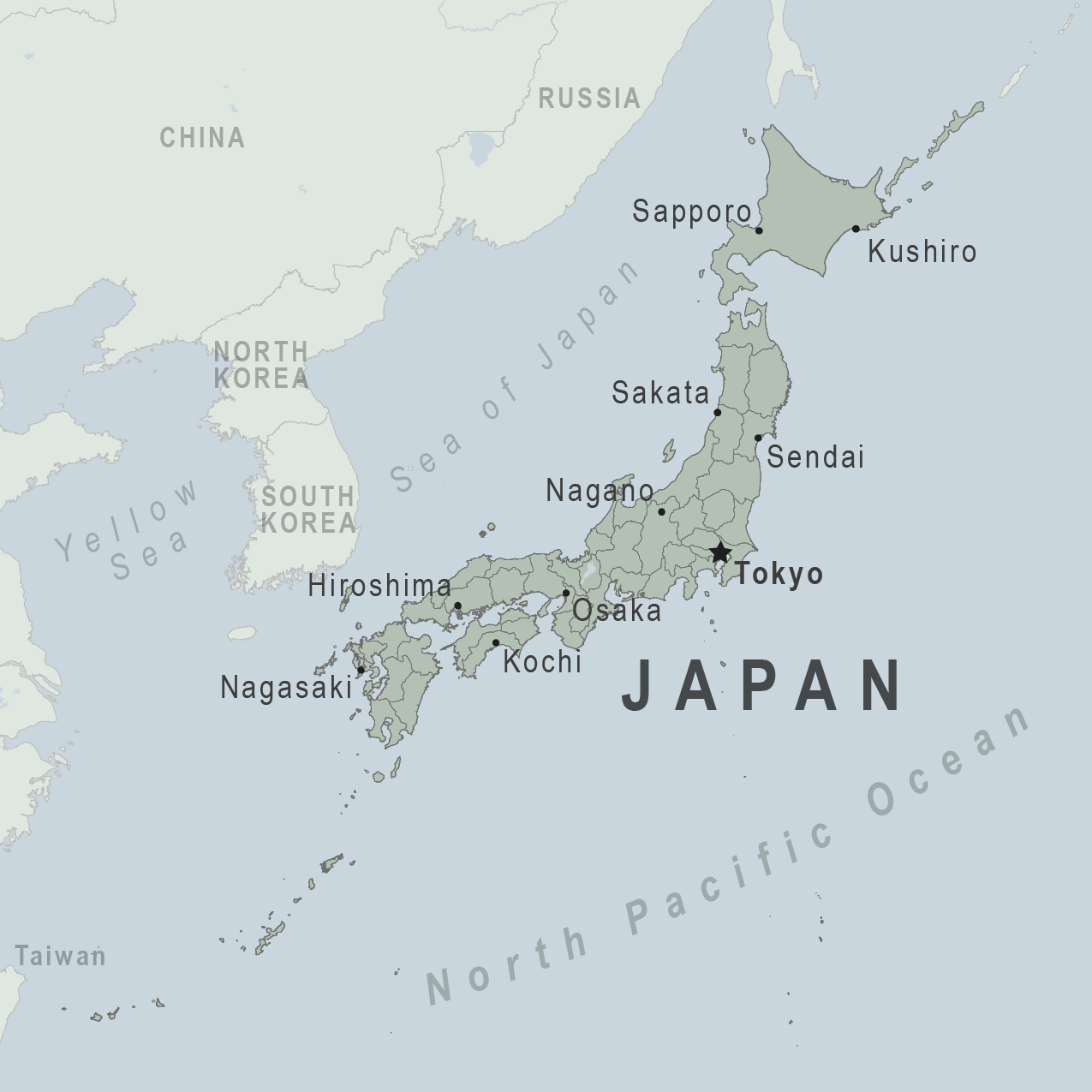
There are no notices currently in effect for Japan.
⇧ Top
Check the vaccines and medicines list and visit your doctor at least a month before your trip to get vaccines or medicines you may need. If you or your doctor need help finding a location that provides certain vaccines or medicines, visit the Find a Clinic page.
Routine vaccines
Recommendations.
Make sure you are up-to-date on all routine vaccines before every trip. Some of these vaccines include
- Chickenpox (Varicella)
- Diphtheria-Tetanus-Pertussis
- Flu (influenza)
- Measles-Mumps-Rubella (MMR)
Immunization schedules
All eligible travelers should be up to date with their COVID-19 vaccines. Please see Your COVID-19 Vaccination for more information.
COVID-19 vaccine
Hepatitis A
Consider hepatitis A vaccination for most travelers. It is recommended for travelers who will be doing higher risk activities, such as visiting smaller cities, villages, or rural areas where a traveler might get infected through food or water. It is recommended for travelers who plan on eating street food.
Hepatitis A - CDC Yellow Book
Dosing info - Hep A

Hepatitis B
Recommended for unvaccinated travelers younger than 60 years old traveling to Japan. Unvaccinated travelers 60 years and older may get vaccinated before traveling to Japan.
Hepatitis B - CDC Yellow Book
Dosing info - Hep B
Japanese Encephalitis
Recommended for travelers who
- Are moving to an area with Japanese encephalitis to live
- Spend long periods of time, such as a month or more, in areas with Japanese encephalitis
- Frequently travel to areas with Japanese encephalitis
Consider vaccination for travelers
- Spending less than a month in areas with Japanese encephalitis but will be doing activities that increase risk of infection, such as visiting rural areas, hiking or camping, or staying in places without air conditioning, screens, or bed nets
- Going to areas with Japanese encephalitis who are uncertain of their activities or how long they will be there
Not recommended for travelers planning short-term travel to urban areas or travel to areas with no clear Japanese encephalitis season.
Japanese encephalitis - CDC Yellow Book
Japanese Encephalitis Vaccine for US Children
Cases of measles are on the rise worldwide. Travelers are at risk of measles if they have not been fully vaccinated at least two weeks prior to departure, or have not had measles in the past, and travel internationally to areas where measles is spreading.
All international travelers should be fully vaccinated against measles with the measles-mumps-rubella (MMR) vaccine, including an early dose for infants 6–11 months, according to CDC’s measles vaccination recommendations for international travel .
Measles (Rubeola) - CDC Yellow Book
Dogs infected with rabies are not commonly found in Japan.
If rabies exposures occur while in Japan, rabies vaccines are typically available throughout most of the country.
Rabies pre-exposure vaccination considerations include whether travelers 1) will be performing occupational or recreational activities that increase risk for exposure to potentially rabid animals and 2) might have difficulty getting prompt access to safe post-exposure prophylaxis.
Please consult with a healthcare provider to determine whether you should receive pre-exposure vaccination before travel.
For more information, see country rabies status assessments .
Rabies - CDC Yellow Book
Tick-borne Encephalitis
Avoid bug bites
Learn more about tick-borne encephalitis at your destination .
Tick-borne Encephalitis - CDC Yellow Book
Avoid contaminated water
Leptospirosis
How most people get sick (most common modes of transmission)
- Touching urine or other body fluids from an animal infected with leptospirosis
- Swimming or wading in urine-contaminated fresh water, or contact with urine-contaminated mud
- Drinking water or eating food contaminated with animal urine
- Avoid contaminated water and soil
Clinical Guidance
Airborne & droplet, avian/bird flu.
- Being around, touching, or working with infected poultry, such as visiting poultry farms or live-animal markets
- Avoid domestic and wild poultry
- Breathing in air or accidentally eating food contaminated with the urine, droppings, or saliva of infected rodents
- Bite from an infected rodent
- Less commonly, being around someone sick with hantavirus (only occurs with Andes virus)
- Avoid rodents and areas where they live
- Avoid sick people
Tuberculosis (TB)
- Breathe in TB bacteria that is in the air from an infected and contagious person coughing, speaking, or singing.
Learn actions you can take to stay healthy and safe on your trip. Vaccines cannot protect you from many diseases in Japan, so your behaviors are important.
Eat and drink safely
Food and water standards around the world vary based on the destination. Standards may also differ within a country and risk may change depending on activity type (e.g., hiking versus business trip). You can learn more about safe food and drink choices when traveling by accessing the resources below.
- Choose Safe Food and Drinks When Traveling
- Water Treatment Options When Hiking, Camping or Traveling
- Global Water, Sanitation and Hygiene | Healthy Water
- Avoid Contaminated Water During Travel
You can also visit the Department of State Country Information Pages for additional information about food and water safety.
Prevent bug bites
Although Japan is an industrialized country, bug bites here can still spread diseases. Just as you would in the United States, try to avoid bug bites while spending time outside or in wooded areas.
What can I do to prevent bug bites?
- Cover exposed skin by wearing long-sleeved shirts, long pants, and hats.
- Use an appropriate insect repellent (see below).
- Consider using permethrin-treated clothing and gear if spending a lot of time outside. Do not use permethrin directly on skin.
What type of insect repellent should I use?
- FOR PROTECTION AGAINST TICKS AND MOSQUITOES: Use a repellent that contains 20% or more DEET for protection that lasts up to several hours.
- Picaridin (also known as KBR 3023, Bayrepel, and icaridin)
- Oil of lemon eucalyptus (OLE) or para-menthane-diol (PMD)
- 2-undecanone
- Always use insect repellent as directed.
What should I do if I am bitten by bugs?
- Avoid scratching bug bites, and apply hydrocortisone cream or calamine lotion to reduce the itching.
- Check your entire body for ticks after outdoor activity. Be sure to remove ticks properly.
What can I do to avoid bed bugs?
Although bed bugs do not carry disease, they are an annoyance. See our information page about avoiding bug bites for some easy tips to avoid them. For more information on bed bugs, see Bed Bugs .
For more detailed information on avoiding bug bites, see Avoid Bug Bites .
Stay safe outdoors
If your travel plans in Japan include outdoor activities, take these steps to stay safe and healthy during your trip:
- Stay alert to changing weather conditions and adjust your plans if conditions become unsafe.
- Prepare for activities by wearing the right clothes and packing protective items, such as bug spray, sunscreen, and a basic first aid kit.
- Consider learning basic first aid and CPR before travel. Bring a travel health kit with items appropriate for your activities.
- If you are outside for many hours in the heat, eat salty snacks and drink water to stay hydrated and replace salt lost through sweating.
- Protect yourself from UV radiation : use sunscreen with an SPF of at least 15, wear protective clothing, and seek shade during the hottest time of day (10 a.m.–4 p.m.).
- Be especially careful during summer months and at high elevation. Because sunlight reflects off snow, sand, and water, sun exposure may be increased during activities like skiing, swimming, and sailing.
- Very cold temperatures can be dangerous. Dress in layers and cover heads, hands, and feet properly if you are visiting a cold location.
Stay safe around water
- Swim only in designated swimming areas. Obey lifeguards and warning flags on beaches.
- Do not dive into shallow water.
- Avoid swallowing water when swimming. Untreated water can carry germs that make you sick.
- Practice safe boating—follow all boating safety laws, do not drink alcohol if you are driving a boat, and always wear a life jacket.
Keep away from animals
Most animals avoid people, but they may attack if they feel threatened, are protecting their young or territory, or if they are injured or ill. Animal bites and scratches can lead to serious diseases such as rabies.
Follow these tips to protect yourself:
- Do not touch or feed any animals you do not know.
- Do not allow animals to lick open wounds, and do not get animal saliva in your eyes or mouth.
- Avoid rodents and their urine and feces.
- Traveling pets should be supervised closely and not allowed to come in contact with local animals.
- If you wake in a room with a bat, seek medical care immediately. Bat bites may be hard to see.
All animals can pose a threat, but be extra careful around dogs, bats, monkeys, sea animals such as jellyfish, and snakes. If you are bitten or scratched by an animal, immediately:
- Wash the wound with soap and clean water.
- Go to a doctor right away.
- Tell your doctor about your injury when you get back to the United States.
Reduce your exposure to germs
Follow these tips to avoid getting sick or spreading illness to others while traveling:
- Wash your hands often, especially before eating.
- If soap and water aren’t available, clean hands with hand sanitizer (containing at least 60% alcohol).
- Don’t touch your eyes, nose, or mouth. If you need to touch your face, make sure your hands are clean.
- Cover your mouth and nose with a tissue or your sleeve (not your hands) when coughing or sneezing.
- Try to avoid contact with people who are sick.
- If you are sick, stay home or in your hotel room, unless you need medical care.
Avoid sharing body fluids
Diseases can be spread through body fluids, such as saliva, blood, vomit, and semen.
Protect yourself:
- Use latex condoms correctly.
- Do not inject drugs.
- Limit alcohol consumption. People take more risks when intoxicated.
- Do not share needles or any devices that can break the skin. That includes needles for tattoos, piercings, and acupuncture.
- If you receive medical or dental care, make sure the equipment is disinfected or sanitized.
Know how to get medical care while traveling
Plan for how you will get health care during your trip, should the need arise:
- Carry a list of local doctors and hospitals at your destination.
- Review your health insurance plan to determine what medical services it would cover during your trip. Consider purchasing travel health and medical evacuation insurance for things your regular insurance will not cover.
- Carry a card that identifies, in the local language, your blood type, chronic conditions or serious allergies, and the generic names of any medicines you take.
- Bring copies of your prescriptions for medicine and for eye glasses and contact lenses.
- Some prescription drugs may be illegal in other countries. Call Japan’s embassy to verify that all of your prescription(s) are legal to bring with you.
- Bring all the medicines (including over-the-counter medicines) you think you might need during your trip, including extra in case of travel delays. Ask your doctor to help you get prescriptions filled early if you need to.
Many foreign hospitals and clinics are accredited by the Joint Commission International. A list of accredited facilities is available at their website ( www.jointcommissioninternational.org ).
Select safe transportation
Motor vehicle crashes are the #1 killer of healthy US citizens in foreign countries.
Be smart when you are traveling on foot.
- Use sidewalks and marked crosswalks.
- Pay attention to the traffic around you, especially in crowded areas.
- Remember, people on foot do not always have the right of way in other countries.
Riding/Driving
Choose a safe vehicle.
- Choose official taxis or public transportation, such as trains and buses.
- Make sure there are seatbelts.
- Avoid overcrowded, overloaded, top-heavy buses and minivans.
- Avoid riding on motorcycles or motorbikes, especially motorbike taxis. (Many crashes are caused by inexperienced motorbike drivers.)
- Choose newer vehicles—they may have more safety features, such as airbags, and be more reliable.
- Choose larger vehicles, which may provide more protection in crashes.
Think about the driver.
- Do not drive after drinking alcohol or ride with someone who has been drinking.
- Consider hiring a licensed, trained driver familiar with the area.
- Arrange payment before departing.
Follow basic safety tips.
- Wear a seatbelt at all times.
- Sit in the back seat of cars and taxis.
- When on motorbikes or bicycles, always wear a helmet. (Bring a helmet from home, if needed.)
- Do not use a cell phone or text while driving (illegal in many countries).
- Travel during daylight hours only, especially in rural areas.
- If you choose to drive a vehicle in Japan, learn the local traffic laws and have the proper paperwork.
- Get any driving permits and insurance you may need. Get an International Driving Permit (IDP). Carry the IDP and a US-issued driver's license at all times.
- Check with your auto insurance policy's international coverage, and get more coverage if needed. Make sure you have liability insurance.
- Avoid using local, unscheduled aircraft.
- If possible, fly on larger planes (more than 30 seats); larger airplanes are more likely to have regular safety inspections.
- Try to schedule flights during daylight hours and in good weather.
Helpful Resources
Road Safety Overseas (Information from the US Department of State): Includes tips on driving in other countries, International Driving Permits, auto insurance, and other resources.
The Association for International Road Travel has country-specific Road Travel Reports available for most countries for a minimal fee.
Traffic flows on the left side of the road in Japan.
- Always pay close attention to the flow of traffic, especially when crossing the street.
- LOOK RIGHT for approaching traffic.
Maintain personal security
Use the same common sense traveling overseas that you would at home, and always stay alert and aware of your surroundings.
Before you leave
- Research your destination(s), including local laws, customs, and culture.
- Monitor travel advisories and alerts and read travel tips from the US Department of State.
- Enroll in the Smart Traveler Enrollment Program (STEP) .
- Leave a copy of your itinerary, contact information, credit cards, and passport with someone at home.
- Pack as light as possible, and leave at home any item you could not replace.
While at your destination(s)
- Carry contact information for the nearest US embassy or consulate .
- Carry a photocopy of your passport and entry stamp; leave the actual passport securely in your hotel.
- Follow all local laws and social customs.
- Do not wear expensive clothing or jewelry.
- Always keep hotel doors locked, and store valuables in secure areas.
- If possible, choose hotel rooms between the 2nd and 6th floors.
Healthy Travel Packing List
Use the Healthy Travel Packing List for Japan for a list of health-related items to consider packing for your trip. Talk to your doctor about which items are most important for you.
Why does CDC recommend packing these health-related items?
It’s best to be prepared to prevent and treat common illnesses and injuries. Some supplies and medicines may be difficult to find at your destination, may have different names, or may have different ingredients than what you normally use.
If you are not feeling well after your trip, you may need to see a doctor. If you need help finding a travel medicine specialist, see Find a Clinic . Be sure to tell your doctor about your travel, including where you went and what you did on your trip. Also tell your doctor if you were bitten or scratched by an animal while traveling.
For more information on what to do if you are sick after your trip, see Getting Sick after Travel .
Map Disclaimer - The boundaries and names shown and the designations used on maps do not imply the expression of any opinion whatsoever on the part of the Centers for Disease Control and Prevention concerning the legal status of any country, territory, city or area or of its authorities, or concerning the delimitation of its frontiers or boundaries. Approximate border lines for which there may not yet be full agreement are generally marked.
Other Destinations
If you need help finding travel information:
Message & data rates may apply. CDC Privacy Policy
File Formats Help:
- Adobe PDF file
- Microsoft PowerPoint file
- Microsoft Word file
- Microsoft Excel file
- Audio/Video file
- Apple Quicktime file
- RealPlayer file
- Zip Archive file
Exit Notification / Disclaimer Policy
- The Centers for Disease Control and Prevention (CDC) cannot attest to the accuracy of a non-federal website.
- Linking to a non-federal website does not constitute an endorsement by CDC or any of its employees of the sponsors or the information and products presented on the website.
- You will be subject to the destination website's privacy policy when you follow the link.
- CDC is not responsible for Section 508 compliance (accessibility) on other federal or private website.

Major Japanese carmakers admit to cheating on certification tests
Posted: 3 June 2024 | Last updated: 3 June 2024
Toyota, Honda, Mazda, Suzuki and Yamaha have admitted to cutting corners or providing false data in safety tests needed to get vehicle models certified. The disclosures come as a result of internal investigations ordered by Japan's transport ministry in the wake of massive test rigging at Daihatsu, a Toyota subsidiary. Plus, Chinese online fast-fashion giant Shein is poised to go public on the London Stock Exchange, with a potential valuation of nearly 60 billion euros.
More for You
Meet Hollywood's tallest actors: From 6ft 4 to 7ft 4, including Jeff Goldblum and André the Giant
17 Things That Used to Be Affordable But Now Aren’t Worth Buying Anymore
What Those Colored Circles on Food Packages Actually Mean
Diddy sells off his stake in Revolt, the media company he founded in 2013
Paid off your mortgage? Be careful — you’re at risk of title theft.
Chinese Tesla rival BYD says its new hybrid cars can go 1,250 miles without stopping for gas or charging
How to Avoid a Stooped Posture as You Age
Wonder Woman's Lynda Carter, 72, wows in silver swimsuit to promote new music
Martha Stewart’s Secret Ingredient for the Best Banana Bread
Report: Japanese carmaker Toyota set to end massive Olympic sponsorship deal
My mother-in-law, 75, has difficulty paying off her $52,000 mortgage and $20,000 HELOC. Should she sell her home — or take out a reverse mortgage?
Why this self-made millionaire believes an ‘original’ business idea is far from needed
What Is the Average Height for Women?
GOP’s Biden-Manhattan conspiracy theory suffers a double blow
'Extraordinary' Fossil Discoveries Reveal Plants From 30 Million Years Ago
Command senior chief busted for secretly setting up Wi-Fi on US Navy combat ship
‘Plant-Based’ Has Lost All Meaning
I Have $1 Million in a 401(k), With $2,500 Monthly From Social Security at 65. Can I Retire?
Carbon Dioxide Battery Breakthrough
Chef's Hack for Making Cheese Sauce Is a Total Treasure
- Share full article
Advertisement
Supported by
Toyota and Other Japanese Carmakers Say They Mishandled Safety Tests
The Japanese authorities had told the companies to conduct investigations into their compliance with national standards for safety and other issues.

By River Davis and Kiuko Notoya
Reporting from Tokyo
Toyota Motor, Honda Motor and other top Japanese automakers said on Monday that internal investigations found they had mishandled vehicle testing on dozens of models over the past decade.
Toyota said it had failed to gather proper data when doing pedestrian and occupant safety tests for three models, including its popular Yaris Cross sport utility vehicle. Honda and Mazda Motor said they, too, had identified problems related to the testing of several models.
The automakers, which the Japanese government had told to open the investigations, said the testing failures would not affect the performance or safety of their vehicles and that customers could continue to use them normally. Still, Toyota said it would temporarily halt shipments of three of the affected models it produces in Japan. Mazda said it would suspend sales of two Japan models.
The testing problems revealed Monday by Toyota, Honda and Mazda were conducted in Japan to meet the Japanese government’s certification standards. The vehicles at issue were sold in Japan.
Suzuki Motor and Yamaha Motor also said on Monday that they had found inadequate testing in the past.
The disclosures from Toyota and others add to a lengthening tally of testing and certification problems that Japanese automakers have faced in recent months — issues that people in the industry worry could affect consumer perceptions of the quality of Japanese cars.
In December, an internal investigation at a Toyota subsidiary, Daihatsu Motor, revealed that most of its vehicles had not undergone proper collision-safety testing. The next month, another Toyota unit suspended all of its engine shipments after an investigation revealed that it had falsified figures concerning engine power.
Japan’s transport ministry responded in January by instructing 85 companies, including car and component makers, to look into any problems that could have occurred during their testing processes.
“Given that vehicle safety and performance isn’t impacted, this latest revelation isn’t hugely critical for the companies involved,” said Satoru Aoyama, a senior director at Fitch Ratings.
But, Mr. Aoyama said, “there has long been a perception of the superior manufacturing and quality of Japanese products and with these instances of fraud appearing again and again, perceptions may be beginning to change.”
In addition to the problems Toyota found involving three current models, it discovered errors in crash tests and other tests for four models it had discontinued.
In response to the earlier revelations of data falsification and testing problems at Toyota and affiliated companies, Toyota’s chairman, Akio Toyoda, had said he would take responsibility for turning the group around.
In a briefing on Monday, Mr. Toyoda bowed and apologized to customers.
“These acts shake the very foundation of the verification system,” he said. “They should have never been committed.”
Mr. Toyoda said he was working with Toyota group companies to identify problems with internal certification processes and work structures, and had made several trips to visit their work sites himself. “We will carry out concrete improvements,” he said.
Japan’s transport ministry said it would conduct an inspection at Toyota headquarters on Tuesday to follow up on the latest disclosures.
Kiuko Notoya is a Tokyo-based reporter and researcher, covering news and features from Japan. More about Kiuko Notoya
Explore Our Business Coverage
Dive deeper into the people, issues and trends shaping the world of business..
What Happened to Ad-Free TV?: Not long ago, streaming TV came with a promise: Sign up, and commercials will be a thing of the past. Here’s why ads are almost everywhere on streaming services now .
London Moves to Revive Its Reputation: As fears have grown that the city is losing its attractiveness for publicly traded businesses, Britain’s government is making changes to bring them back.
What Do Elite Students Want?: An increasing number of students desire “making a bag” (slang for a sack of money) as quickly as possible. Many of Harvard’s Generation Z say “sellout” is not an insult, appearing to be strikingly corporate-minded .
D.C.’s Empty Offices: Workers in Washington have returned to the office slowly , with a pervasive and pronounced effect on the local economy.
Trump’s Financial Future: Donald Trump has treated Trump Media, which runs his social network Truth Social, as a low-cost sideshow. Now a big portion of his wealth hinges on its success .
We’re sorry, this site is currently experiencing technical difficulties. Please try again in a few moments. Exception: request blocked
We use cookies on this site to enhance your user experience. If you continue to browse you accept the use of cookies on our site. See our Cookie Policy for more information.
- Media & PR
- Meetings & Events
- School Groups
- Travel Trade
- Select Language 简体中文 繁體中文(香港) 繁體中文(臺灣) India (English) Bahasa Indonesia 한국어 ภาษาไทย Tiếng Việt Singapore (English) Philippines (English) Malaysia (English) Australia/New Zealand (English) Français Deutsch Italiano Español United Kingdom (English) Nordic countries(English) Canada (English) Canada (Français) United States (English) Mexico (español) Português العربية Japan(日本語) Global (English)
- India (English)
- Bahasa Indonesia
- Singapore (English)
- Philippines (English)
- Malaysia (English)
- Australia/New Zealand (English)
- United Kingdom (English)
- Nordic countries(English)
- Canada (English)
- Canada (Français)
- United States (English)
- Mexico (español)
- Global (English)
- Fujiyoshida
- Shimonoseki
- Ishigaki Island
- Miyako Island
- Kerama Island
- Tokyo Island
- Koka & Shigaraki
- Hida Takayama
- Ginza, Nihonbashi
- Beppu & Yufuin (Onsen)
- Ginzan Onsen
- Nagasaki Islands

- Kumano Kodo
- Shikoku Karst
- Amami Oshima
- Hachimantai
- Omihachiman
- Aizuwakamatsu

- Diving in Japan
- Skiing in Japan
- Seasonal Flowers in Japan
- Sustainable Outdoors
- Off the Beaten Track in Japan
- Scenic Spots
- World Heritage
- Home Stays & Farm Stays

- Japanese Gardens
- Japanese Crafts
- Temple Stays
- Heritage Stays
- Festivals and Events
- Theater in Japan
- Japanese Tea Ceremony
- Cultural Experiences in Japan
- Culture in Japan

- Local Cuisine Eastern Japan
- Local Cuisine Western Japan
- Local Street Food
- Japan's Local Ekiben
- Japanese Whisky
- Vegetarian and Vegan Guide
- Sushi in Japan Guide
- Japanese Sake Breweries

- Art Museums
- Architecture
- Performing Arts
- Art Festivals
- Japanese Anime and Comics
- Japanese Ceramics
- Local Crafts

- Scenic Night Views
- Natural Wonders
- Theme Parks
- Samurai & Ninja
- Iconic Architecture

- Wellness Travel in Japan
- Japanese Ryokan Guide
- A Guide to Stargazing in Japan
- Relaxation in Japan
- Forest Bathing (Shinrin-yoku)

- Experiences in Japan
- Enjoy my Japan
- National Parks
- Japan's Local Treasures
- Japan Heritage
- Snow Like No Other
- Wonder Around Japan

- Visa Information
- Getting to Japan
- Airport Access
- COVID-19 Practical Information
- Anime Tourism
- Countryside Stays
- Sustainable Travel
Accommodation
- Sample Itineraries
- Travel Agents
- Deals and Tours

- Traveling by Rail
- How to Travel by Train and Bus
- JR Rail Passes
- Train Passes and Discounted Tickets
- Scenic Railways
- Renting a Car
- Yokohama Cruise Port Access
- Travel Brochures
- Useful Apps
- Accommodation Types
- Online Reservation Sites
- Eco-friendly Accommodation
- Luxury Accommodations
- Traveling With a Disability
- Hands-free Travel
- How to Book a Certified Tour Guide
- Volunteer Guides
- Tourist Information Center

- Japanese Manners
- Sustainable Travel in Japan
- Spring in Japan
- Summer in Japan
- Autumn in Japan
- Winter in Japan
- Seasonal Attractions
- Monthly Events Calendar
- Cherry Blossom Forecast
- Autumn Leaves Forecast

- Japan Visitor Hotline
- Travel Insurance in Japan
- Japan Safe Travel Information
- Accessibility in Japan
- Vegetarian Guide
- Muslim Travelers
- Safety Tips

- All News & Blog
- Travellers Blog
- Guides to Japan
- Stories of Japan
- The Other Side of Japan
- Media Releases
- JAPAN Monthly Web Magazine

My Favorites
${v.desc | trunc(25)}
Planning a Trip to Japan?
Share your travel photos with us by hashtagging your images with #visitjapanjp
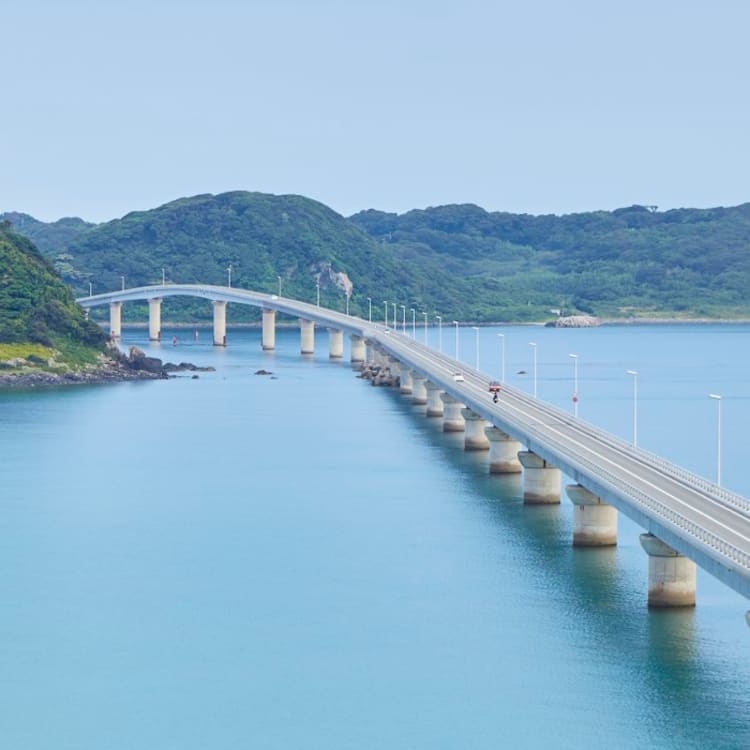
COVID-19 Health & Safety Information
Please note this page is no longer being updated..
For the latest information on entry to Japan, please visit the following page: COVID-19: Practical Information for Traveling to Japan
Information on the easing of travel restrictions to Japan (as of 11 November 2022)
*For passport holders from other countries, please see the links below for the Embassies and Consulates-General of Japan for more information.
PCR tests or quarantine on arrival are not required, regardless of vaccination status. For more information on the process and entry requirements, refer to the below image or visit this page to view the information in checklist form.
Process Map
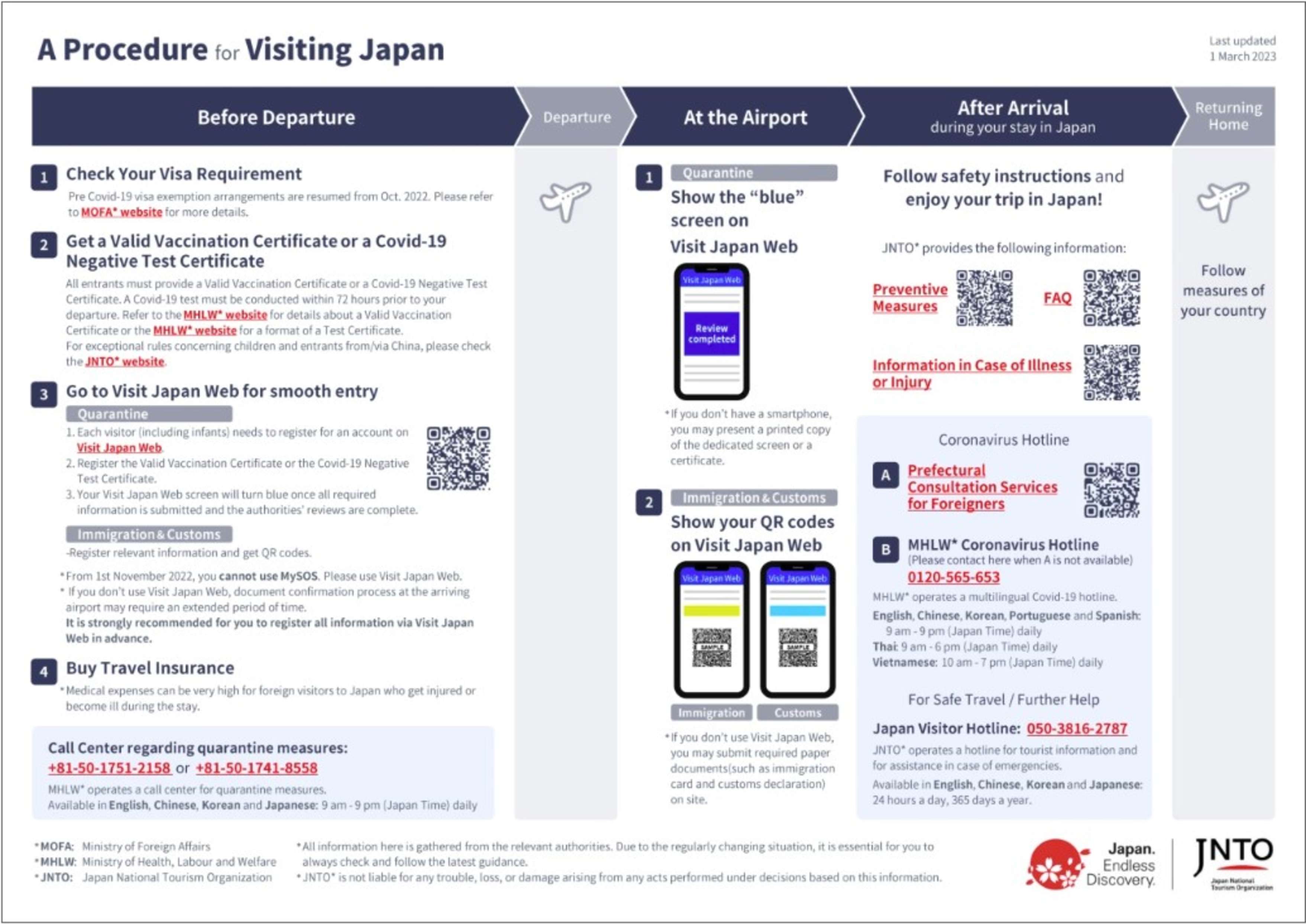
Useful Resources
Au / nz government travel advisories , visit japan / jnto sites .
The Coronavirus travel restrictions page is a travel advisory updated regularly in line with the official information provided by the Government of Japan.
COVID-19: Practical Information for Traveling to Japan is an information page built to help travellers plan a safe trip around Japan.
See specific measures taken by Japanese organisations below.

Airlines & Airports
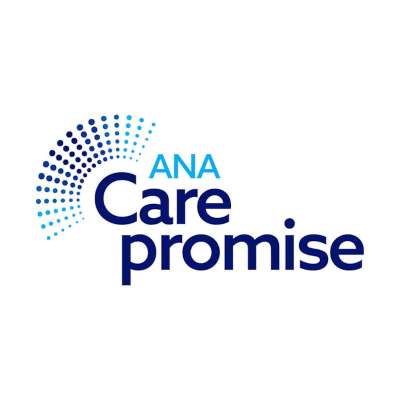
The ANA Care Promise set of health and safety initiatives has been awarded a 5-Star COVID-19 Safety Rating from SKYTRAX, the highest possible rating, and one that only a few airlines worldwide has achieved.
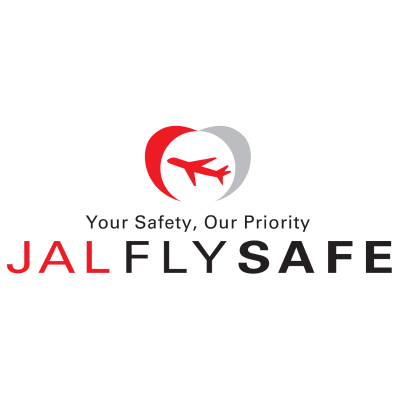
The JAL FlySafe set of health and safety initiatives has been recognised by Skytrax with a 5-Star COVID-19 Airline Safety Rating, along with a Diamond Certification by APEX Health Safety powered by SimpliFlying.
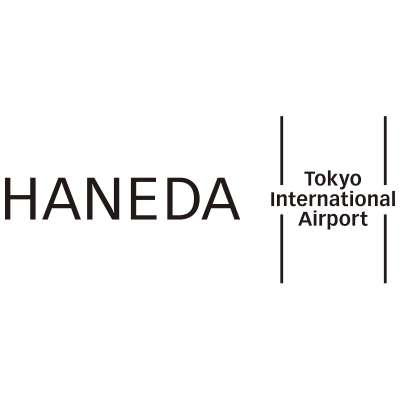
Haneda Airport’s webpage includes information on how to use airport facilities safely and measures to prevent the spread of infection, especially in regards to the 3 Cs: closed spaces, crowded spaces, close-contact settings.

Narita Airport has implemented nine key initiatives to prevent the spread of infection including the installation of transparent barriers, ensuring optimum air ventilation and stringent cleaning practices.
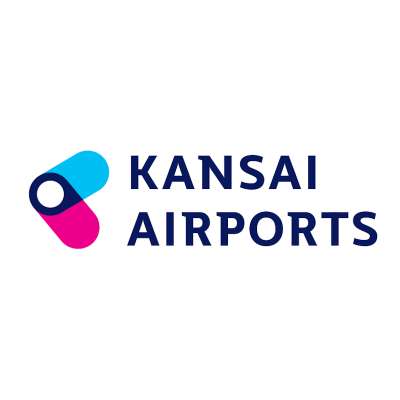
Kansai International Airport has a number initiatives in place to prevent the spread of infection including the use of thermographic cameras, increased cleaning and disinfection of surfaces and social distancing measures.

Railway Companies
Japan has an expansive railway network that is owned and operated by many companies. Japan Railways (JR) is the most well-known thanks to the popular JR Pass and high-speed shinkansen (bullet trains). Its vast and elaborate network can be a bit daunting to navigate at first - it's actually operated by six separate companies: JR Hokkaido, JR East, JR Central, JR West, JR Shikoku, JR Kyushu.
In particular, please note the popular Tokaido-Sanyo Shinkansen (Tokyo to Hakata) is run by both JR Central and JR West – JR Central operates the section from Tokyo to Osaka, and JR West operates the section from Osaka and Hakata.

JR Hokkaido services the northern island of Hokkaido and also operates the section of the shinkansen route between Shin-Aomori Station on Honshu and Shin-Hakodate-Hokuto Station in southern Hokkaido. Download the ‘Major actions on preventing the spread of novel coronavirus’ PDF from their website for more information.

JR East services eastern Japan including the capital of Tokyo and the north-eastern region of Tohoku. It also operates the Hokuriku Shinkansen which stops at cities such as Nagano, Kanazawa and Niigata.

JR Central services central Japan and operates the Tokaido Shinkansen, a popular route that runs between Tokyo and Osaka travels through major cities such as Yokohama, Nagoya and Kyoto. The ‘COVID-19 Protective Measures’ PDF is available to download from their website.

JR West services western Japan, including well-known cities such as Nara, Osaka, Kyoto, Wakayama, Kobe and Hiroshima. It operates the Sanyo Shinkansen which runs from Shin-Osaka Station to Hakata Station in Fukuoka Prefecture on the southern island of Kyushu.
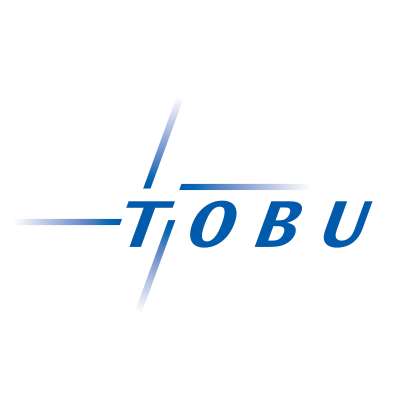
Tobu services the area of Tokyo and surrounds, providing connections to popular destinations such as Nikko, Asakusa, Tokyo Skytree and Kawagoe. Information on the latest measures to prevent the spread of infection is available to download from their website.
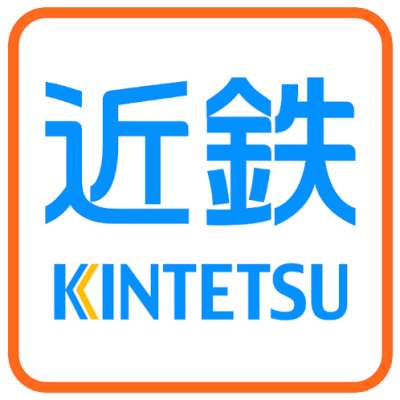
Kintetsu Railway services the areas of Osaka, Kyoto, Nara, Ise-shima (Mie Prefecture) and Nagoya. As part of a number of measures implemented to prevent the spread of infection, Kintestsu has sprayed the interior of its train carriages with an antiviral and antibacterial treatment.
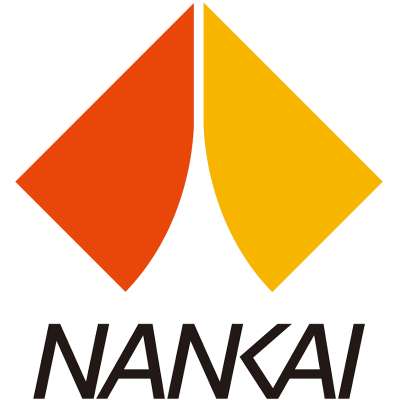
Nankai Electric Railway services southern Osaka Prefecture and Wakayama Prefecture. It connects the southern hub of Namba to Kansai International Airport, Wakayama and Koyasan. Information on health and safety measures that have been implemented is available to download from their website.

JR-West Hotels have implemented new 'Clean & Safety' hygiene standards, and have received the coveted Trusted Cleanliness Badge, a certificate issued by Trust You, one of the top class platforms in the hotel industry. (JR-West Hotels brands include Hotel Granvia, Hotel Vischio by Granvia, Nara Hotel and Potel.)

Prince Hotels has developed the Prince Safety Commitment, a set of new protocols for hygiene and disinfection to be applied to all the hotels under their brands. These will enable Prince Hotels to provide guests with a safe and clean environment during their stay.

Palace Hotel Tokyo has achieved the GBAC STAR™ Facility Accreditation and has become Sharecare Health Security VERIFIED™ with Forbes Travel Guide. These accreditations show Palace Hotel Tokyo is committed to implementing best practices and operating as safely as possible.

Imperial Hotel Osaka has received GBAC STAR™ accreditation and is Sharecare Health Security VERIFIED™ with Forbes Travel Guide. These demonstrate the hotel meets international hygiene standards for infectious disease prevention measures and is committed to following best practices to ensure the safety and comfort of its guests.

Destinations

Miyazaki Prefecture Tourism Association has produced a video to introduce the safety measures taken by the Miyazaki Tourism Industry for the post-COVID-19 era.

Attractions

Read about the health and safety measures that are in place at Tokyo Disneyland and Tokyo DisneySea as well as update on the status of rides, attractions, restaurants and other facilities at each theme park.
- JNTO Sydney
- COVID-19 Health & Safety Information
Please Choose Your Language
Browse the JNTO site in one of multiple languages

IMAGES
VIDEO
COMMENTS
Travelers who are unsure of their eligibility to travel to Japan should contact the nearest Japanese embassy or consulate for additional information. Effective as of midnight April 29, 2023 (Japan time), all travelers arriving in Japan will no longer need to present proof of vaccination or a negative Covid-19 test certificate.
Last updated: Wednesday, May 31st, 2023. Get ready for your dream trip to Japan! Japan is now open to travelers from all countries or regions! Those who enter Japan on or after April 29th 2023 are not be required to present a valid vaccination certificate or a Covid-19 negative test certificate.
COVID-19 test resultbefore boarding. Pre-registration of Visit Japan Web is required in order to enter Japan. Please click herefor details. Within 72 hours prior to departure Required to present upon entry into Japan Prepare a valid test certificate. *Only for travelers who cannot present a valid COVID-19 vaccination certificate.
[ANA Official Website] You may be required to present a negative PCR test certificate upon entering any country or region. Get information on medical facilities offering PCR tests for customers traveling internationally from Japan. Information about preparing for travel. Plan for your travel with ANA Website.
9. Visit Japan Web. Visit Japan Web is a convenient way to register information for quarantine, immigration and customs procedures before you enter Japan. You can upload an electronic certificate of a negative COVID-19 test result for a test conducted within 72 hours of travel, and generate a QR code. The service is available in English and ...
Beginning Sept. 7, Japan will drop the pre-departure COVID-19 test for vaccinated visitors. ... Why Japan Is Travel + Leisure's 2018 Destination of the Year (Video)
The U.S. Embassy strongly urges any U.S. citizens considering travel to Japan to carefully review the information available from the Government of Japan. TOKYO'S COVID-19 OMICRON VARIANT CALL CENTER. Japan has opened a call center for inquiries about the COVID-19 Omicron variant. The call center is open every day from 9:00 AM to 10:00 PM.
Japan is now open to travelers from all countries or regions. Travelers are required to provide either a valid COVID-19 vaccination certificate (3 doses) of WHO-approved vaccines or a certificate of negative result of pre-departure COVID-19 test conducted within 72 hours prior to departing from the originating country/region.
Negative Covid-19 test certificate. To enter Japan, you'll need to show certification of a negative Covid-19 test 72 hours prior to your departure to Japan. Valid forms of Covid-19 testing ...
Tourists from all countries or regions can visit Japan on a package tour (including non-guided package tour). Learn about the current situation, checklist for tourists, entry restrictions and safety measures before you travel.
1. Border Measures. Vaccination certificates and pre-departure tests are no longer required to enter Japan. Travelers and returnees with COVID-19 symptoms will no longer be subjected to on-arrival testing. Travelers with a positive COVID-19 test result will not be treated at designated facilities.
Japan - Level 1: Exercise Normal Precautions. Reissued after periodic review without changes. Exercise normal precautions in Japan. Read the country information page for additional information on travel to Japan. If you decide to travel to Japan:
Call us in Washington, D.C. at 1-888-407-4747 (toll-free in the United States and Canada) or 1-202-501-4444 (from all other countries) from 8:00 a.m. to 8:00 p.m., Eastern Standard Time, Monday through Friday (except U.S. federal holidays). See the State Department's travel website for the Worldwide Caution and Travel Advisories.
Mita Kokusai Building Clinic. This clinic provides travel assistance to more than 170 countries worldwide and is accredited by embassies including those for Hawaii and China. It provides reliable pre-travel testing for your peace of mind, and also caters for infants, English speakers, and groups. The clinic is open on Saturdays (in the morning).
After a long wait that felt like forever, we can visit the Land of the Rising Sun again! Starting 11 Oct 2022, Japan entry requirements will be further eased as the government fully resumes mass tourism. The country will finally allow visa-free travel (for applicable countries) and scrap the daily arrival cap, according to The Japan Times.During this period, travellers will also no longer need ...
For Travelers. Information in case of illness or injury. Official announcements from the Government of Japan. Answers to your questions about traveling to Japan and staying safe during COVID-19, including where to get help if you need it.
Travel during daylight hours only, especially in rural areas. If you choose to drive a vehicle in Japan, learn the local traffic laws and have the proper paperwork. Get any driving permits and insurance you may need. Get an International Driving Permit (IDP). Carry the IDP and a US-issued driver's license at all times.
Notice: All border measures to prevent the spread of COVID-19 were lifted on April 29th, 2023. Those who are entering Japan on or after April 29th, 2023, are not be required to present a Valid Vaccination Certificate or a Covid-19 Negative Test Certificate.
CDC recommends that travelers avoid all nonessential travel to Japan. Widespread ongoing transmission of a respiratory illness caused by a novel (new) coronavirus (COVID-19) has been reported in Japan. Widespread ongoing transmission means that people have been infected with the virus, but how or where they became infected is not known, and ...
The disclosures come as a result of internal investigations ordered by Japan's transport ministry in the wake of massive test rigging at Daihatsu, a Toyota subsidiary.
Access Visit Japan Web website You can submit the following documents through "Fast Track". If you cannot access Visit Japan Web: All passengers entering Japan with a valid COVID-19 vaccination certificateno longer need to present a negative COVID-19 test result taken within 72 hours prior to departure.
Reporting from Tokyo. June 3, 2024 Updated 2:18 p.m. ET. Toyota Motor, Honda Motor and other top Japanese automakers said on Monday that internal investigations found they had mishandled vehicle ...
Travelers may wish to bring importable, non-perishable food in their carry-on luggage. Additionally, travelers should travel with sufficient medication and baby/toddler needs in anticipation of extended wait times at the airport. Dietary Restrictions at Quarantine Hotels. Food will be provided at government of Japan-designated hotels.
The Coronavirus travel restrictions page is a travel advisory updated regularly in line with the official information provided by the Government of Japan. COVID-19: Practical Information for Traveling to Japan is an information page built to help travellers plan a safe trip around Japan. See specific measures taken by Japanese organisations below.
United Airlines - Airline Tickets, Travel Deals and Flights If you're seeing this message, that means JavaScript has been disabled on your browser, please enable JS ...